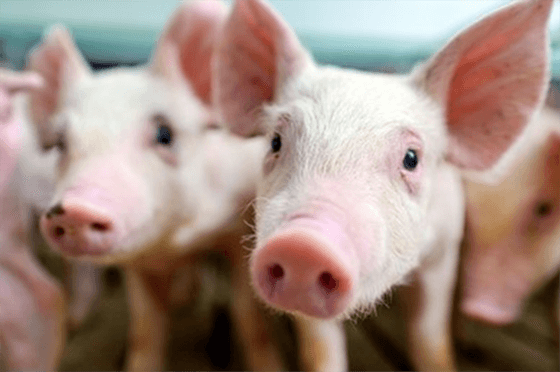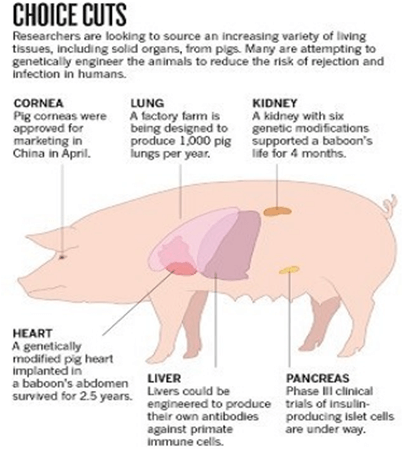As an economically important animal, pig (Sus scrofa) has a close relationship with human life. Pigs not only provide meat, but also have unique superiority and practical value in life science research as they are highly similar to humans in physiology, immunology, and genomics, and have advantages in organ size over rodents.

With genomic selection as the core, combined with genetic engineering technology, Lifeasible can quickly and effectively genetically improve important economic traits of pigs to create new traits or new breeds. It can improve the growth rate and leanness of pigs, meat quality, fertility and resistance to adversity, etc.
Lifeasible relies on professional gene-editing technology and rich experience to carry out diverse editing of single and multiple gene deletions and insertions, up-regulation, knock-down or precise modification of gene expression, we provide solutions for the improvement and enhancement of pig production traits and genetic traits as well as medical clinical applications.
MSTN is a protein hormone secreted by myocytes that negatively regulates the growth and development of adult myocytes. Animals with a bimuscular trait have been found in nature to have significantly more muscle mass than normal animals, and analysis has revealed that their MSTN gene is inactivated by natural mutations, by knocking out the MSTN gene and mutating the IGF2 gene by CRISPR/Cas9, Base editing, and Prime editing to obtain pigs with high lean muscle mass.
PRRS is an infectious disease caused by the porcine PRRS virus (PRRSV) that causes $600 million in economic losses to the North American swine industry each year. CD163, a member of the SRCR family, is a key factor that regulates the initial stages of PRRSV infection. Lifeasible can precisely edit the SRCR5 structural domain of CD163, a protein that mediates PRRSV internalization and repackaging on the surface of macrophages, by CRISPR/Cas9 technology, thus enabling pigs to acquire natural immunity to PRRSV without affecting other physiological functions of CD163, satisfying the need for breeding pigs for disease resistance without introducing any exogenous genes or markers.
Allogeneic organ transplantation and xenogeneic cell transplantation are important ways to solve the shortage of human donor organs, and pigs are considered to be the preferred animal for human xenogeneic organ sources and xenogeneic cell regeneration. Their organs are not only very similar to human organs in size and tissue structure but also avoid the ethical problems associated with primates as xenogeneic donor sources. The primary problem facing xenotransplantation is immune rejection. Lifeasible can use gene-editing technology to prepare ASGR knockout pigs to reduce the incidence of thrombocytopenia during organ transplantation.
 Figure 1. Pig-to-human transplants. (Reardon S., et al., 2015)
Figure 1. Pig-to-human transplants. (Reardon S., et al., 2015)
Compared with mice and other model animals, the metabolism and disease processes in pigs are more similar to those in humans. Lifeasible can use genome editing technology to knock out DAZL gene, APC gene, GGTA1 gene, Parkin gene, PINK1 gene, DJ-1 (Parkinson's disease-related gene), and use CRISPR/Cas9 technology to knock out vWF gene (vascular hemophilia related) and TYR gene (human albinism related) to prepare genome editing pig models of human diseases.
References
Lifeasible has established a one-stop service platform for plants. In addition to obtaining customized solutions for plant genetic engineering, customers can also conduct follow-up analysis and research on plants through our analysis platform. The analytical services we provide include but are not limited to the following:
Get Latest Lifeasible News and Updates Directly to Your Inbox
Adaptive Evolutionary Mechanism of Plants
February 28, 2025
Unraveling Cotton Development: Insights from Multi-Omics Studies
February 27, 2025